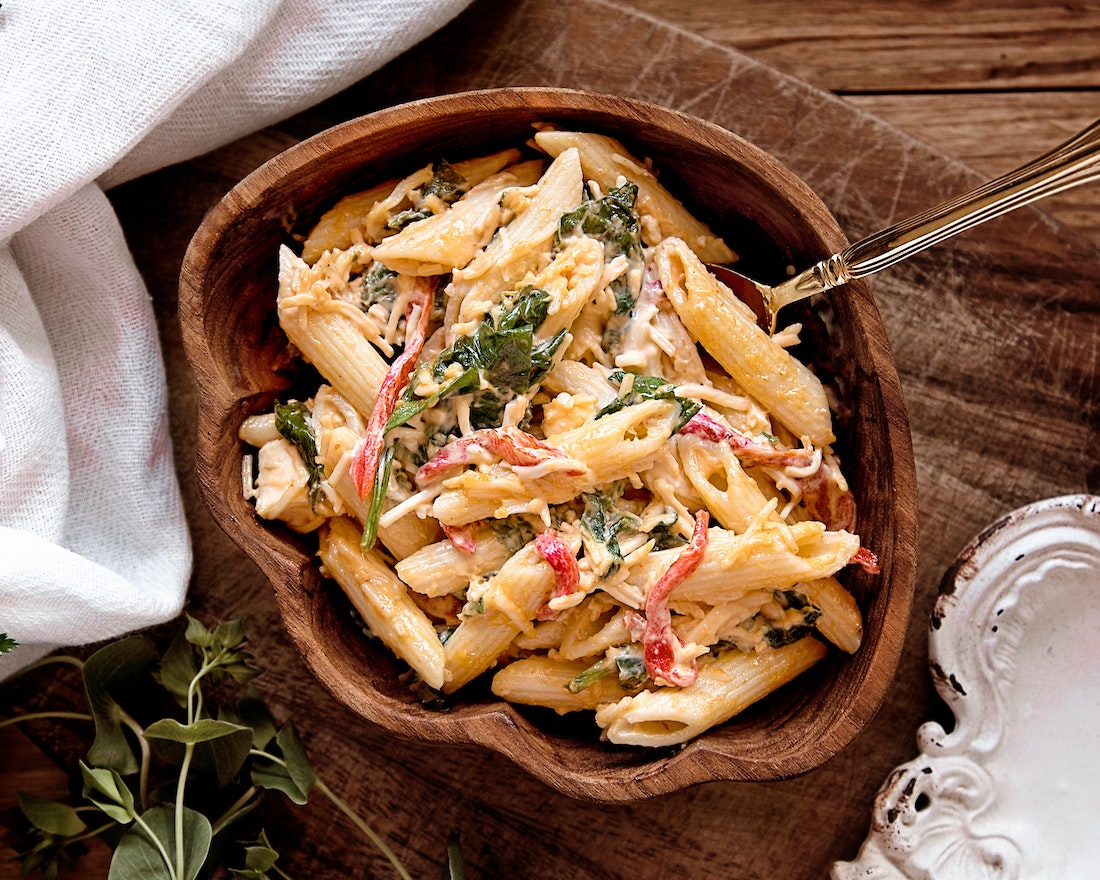Diet culture has demonized carbohydrates and we non-diet dietitians are here to set the record straight. Before jumping into debunking some of the most commonly heard diet culture myths regarding carbs, let’s discuss what a carb actually is. A carbohydrate is one of the three macronutrients (carbohydrates, proteins, and fats) that the body needs on a daily basis. They are the body and brain’s main source of fuel, which is why our bodies need carbs. Carbohydrates break down into glucose. A type of sugar.
Let’s go through some myths about carbohydrates.
Myth 1: The body will store excess carbohydrates as fat
Does the body store carbohydrates as fat? No! Our bodies do not like to store carbohydrates as fat. In fact the body tries extremely hard to resist this. The body would much rather use the energy from carbohydrates for bodily functions. And the brain’s energy needs. Storing carbohydrates as fat would be inefficient to the body’s goal of survival and meeting its needs.
When an individual eats carbohydrates, they are broken down into glucose. Then digested and absorbed. Glucose is used as a primary source of fuel in many tissues and organs, which is why our bodies need carbs. This usually occurs at a faster rate than when someone eats fats or protein because the body is energy hungry.
Myth 2: If you are going to eat carbohydrates you should eat them earlier in the day
Well, this is just wrong. The body responds no differently to food eaten in the morning or at night. Remember, the brain uses glucose for energy. The brain can only use glucose as energy. And it needs a consistent amount of carbohydrates because it does not store it or save it for later. Although there are many reasons why our bodies need carbs, this reason alone is so important to our health and wellbeing. This means that even if you eat a lot of carbs at one meal, you will still need more later. Otherwise you will be depriving your brain of vital energy it needs. And you may start to feel “hangry” – low on energy, unable to focus, and irritable.
Myth 3: There are good and bad carbohydrates
We find this type of rhetoric to be quite dangerous. Placing morality on foods and how we eat them is harmful. And a behavior often seen in eating disorders and disordered eating. All types of carbohydrates are important to the body and serve a purpose.
There are complex carbohydrates. Commonly referred to as the “good” carbs in diet culture. These types of carbohydrates consist of a longer chain of glucose molecules. Because the chains are longer they take longer to break down and release the glucose into the bloodstream. Meaning it takes more time for the body to utilize the energy. Whole-wheat products, beans, and high fiber carbohydrates fall into this category.
Simple carbohydrates. Or the “bad” carbs in diet culture. Are only one to two glucose molecules chained together. Because this chain is shorter it breaks down quickly. And provides a rapid release of glucose into the blood stream. These types of carbohydrates are great to have when an individual is going to need quick energy – such as during different types of sports or movement. However, simple carbs can be consumed at all times of the day. They may not keep an individual as full as their counterpart, complex carbs. For this reason we often recommend adding some other food items to the mix to meet all the body’s nutrient needs.
Myth 4: One can survive without consuming carbohydrates – The Keto Diet
Is the ketogenic diet good for… ? This could be a blog post in and out of itself. The keto diet should only be used in certain very specific medical cases under the care and monitoring of a physician. The keto diet is not for the average individual. Meaning the majority of the population should not be following the keto diet, and it is dangerous to do so.
So what happens when we do not eat adequate carbohydrate amounts? The body has to work inefficiently. It is missing its main energy source. The body will begin to break down protein in muscles to get the energy that it needs. The body also will sometimes break down fat for energy as well. This can result in hormone imbalances that wreak havoc on the body. Diets low in carbohydrates often make up nourishment by increasing protein or fat intake. This can place stress on the kidneys. Other complications often seen include nutrient deficiencies, bone health complications, digestive issues, low blood sugars, brain fog, and low focus, which is why our bodies need carbs.
Let’s Recap:
- Carbohydrates are one of the three macronutrients; they are absorbed the fastest in the body
- Carbohydrates are the body and brain’s main fuel source. One of the most important reasons why our bodies need carbohydrates
- ALL types of carbohydrates, complex and simple, are important and vital to the body
- Limiting carbohydrates can result in negative health complications including low blood sugar, brain fog, digestive issues, nutrient deficiencies, and malnourishment
If you or someone you know is struggling with carbohydrates, or any other macronutrient or food, please reach out to a HAES aligned eating disorder dietitian.
Final Remarks
For more information, contact us at Courage to Nourish today. Our eating disorder dietitian nutritionists are located in College Park, Maryland. and Columbia, Maryland. As well as Alexandria, Virginia. Colorado. and Pennsylvania. Read more about the Courage to Nourish team. We’d love to support you in eating disorder recovery.
Also, sign up for our client or clinician newsletter!

Lauren is an eating disorder dietitian at Courage to Nourish. She specializes in working with clients in recovery from anorexia, bulimia, and binge eating disorder. Lauren uses the principles of intuitive eating and Health at Every Size in her work. She is currently holding virtual sessions with clients. To set up a discovery call with Lauren or another Courage to Nourish dietitian, complete our contact form. View Lauren's full bio here.


